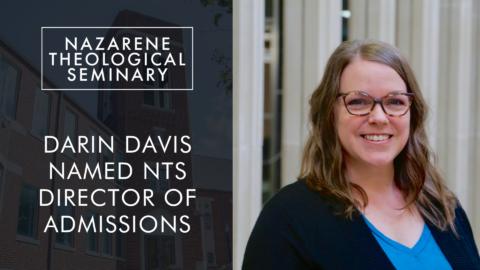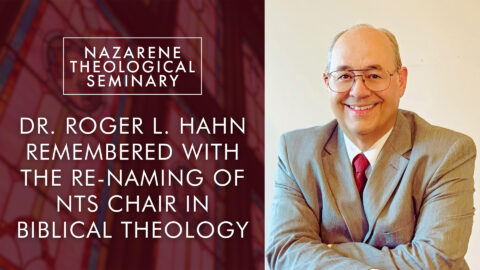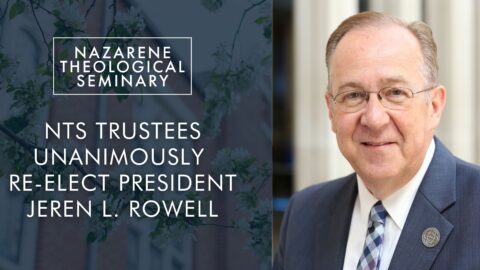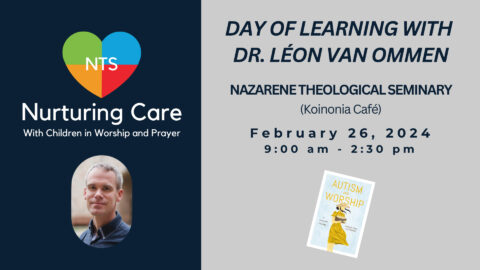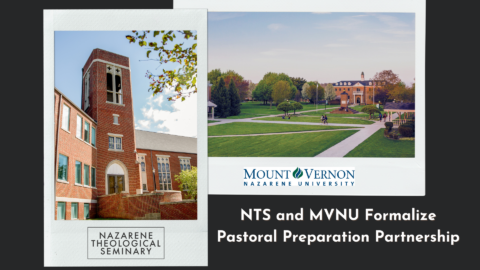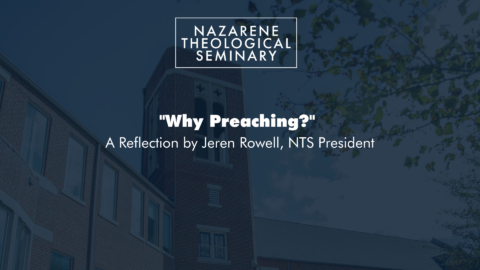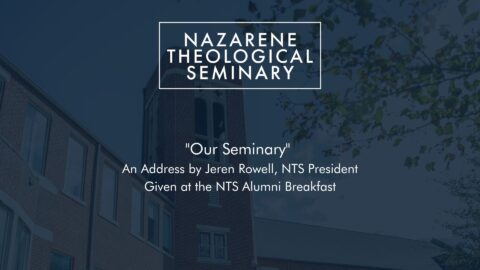Recently, I was asked an important question: “Why does the church need the seminary?” It was asked by a pastor who clearly believes in education, but who also understands that our ecclesial tradition has not always been comfortable with higher education. This has been true from the beginning.
Earlier this year I received a letter from a well-known and respected leader in the Church who was reflecting with appreciation on the transformative impact that seminary education had in his life. He also shared that when he was preparing to begin seminary study, the pastor of his local church invited the folks to gather around him at the altar to pray that he “would not be lured away from the old-fashioned way.”
As previously noted in this space, the vision to start a seminary was immediately opposed by some. The fear seemed to be that too much education might dim one’s evangelistic passion or disconnect one from the concerns and needs of ordinary folks. As Cunningham, Ingersol, Raser, and Whitelaw note in their important history of the Church of the Nazarene, “. . . the seminary faced suspicions from district superintendents that it was producing cerebral and liberal scholars unable and unwilling to handle home missions or plant churches.”[1]
However, research data consistently reveals that not only do NTS graduates become pastors in the majority, but also that congregations pastored by NTS graduates report more conversions, baptisms, new Nazarenes, worship attendance, and payment of World Evangelism Fund (WEF).[2] Perhaps the expressed concern is based more in fear than in fact.
We may assume that the purpose of seminary is to prepare pastors and ministry leaders for their tasks. This is certainly true, as most NTS programs are practical and professional in nature. However, there is much more to be said in answer to the question, and something more foundational than pragmatic concerns.
We need a seminary because, as Dr. J. B. Chapman understood, we need “a certain percentage [of pastors] who have had college training and seminary advantages.”[3] These advantages include focused, graduate level theological study, top-tier faculty scholarship, decades of faculty pastoral experience, and the support of a Church that provides the necessary resources. In addition to theological content and reflection, seminary provides space for grounding in spiritual formation that shapes ministers of the gospel to be people of prayer, wisdom, and discernment.
We also need a seminary because the Church must have people, as we have at NTS, who are giving themselves to the work of theological research, reflection, and articulation of that research for the sake of the Church. The Church needs the faculty of Nazarene Theological Seminary to do the necessary work of research and fresh articulation of our engagement with Scripture, with the historic Christian faith, and with the dynamic nature of practical theology. My deep conviction remains that the theological task of the church is essential to our mission and ministry.
In the foreword to Dr. Ray Dunning’s, Grace, Faith, & Holiness, the Board of General Superintendents wrote: “Theological understanding and insight are necessary for faithful discipleship and effective service. The faith of the church must be known and continuously articulated in contemporary contexts.”[4]
Across our limited history, it has been demonstrated on many occasions that without the stabilizing, centering work of theological reflection, the Church can too easily drift away from the creative tension of the Wesleyan via media into the undisciplined comfort of extremes. In these perilous days, the need for a centering theological voice for the sake of the Church has never been more obvious.
The truth is, there are times when the academy has “earned” the suspicious caution of the church. Sometimes seminary educated pastors do not exercise wisdom and patience in the work of guiding the faithful toward deepened understanding of the gospel. These unfortunate realties, however, are in no way sufficient to dismiss the essential and necessary place of higher learning that is engaged in service to the gospel.
So, what good is a seminary? It is for the good purpose that we might “know and love the Lord, walk with the Lord, and speak of the Lord with charity and hospitality.” And it is “to ground persons in the community of faith and in theological disciplines for the practice of ministry in diverse contexts throughout the world.”[5]
It is toward this good that Nazarene Theological Seminary was raised up. It is toward this good that we who serve at NTS are giving our lives in response to “the upward call of God in Christ Jesus” (Phil. 3:14, NASB).

Dr. Jeren Rowell
President and Professor of Pastoral Ministry
[1] Cunningham, F., et. al., Our Watchword & Song: The Centennial History of the Church of the Nazarene. (Beacon Hill Press, 2009), p. 478.
[2] Based on data analysis from Nazarene Research Services and NTS Graduate Survey.
[3] Herald of Holiness, March 14, 1928.
[4] Dunning, H., Grace, Faith & Holiness, Beacon Hill Press, 1988, p. 6.
[5] NTS Core Values.



